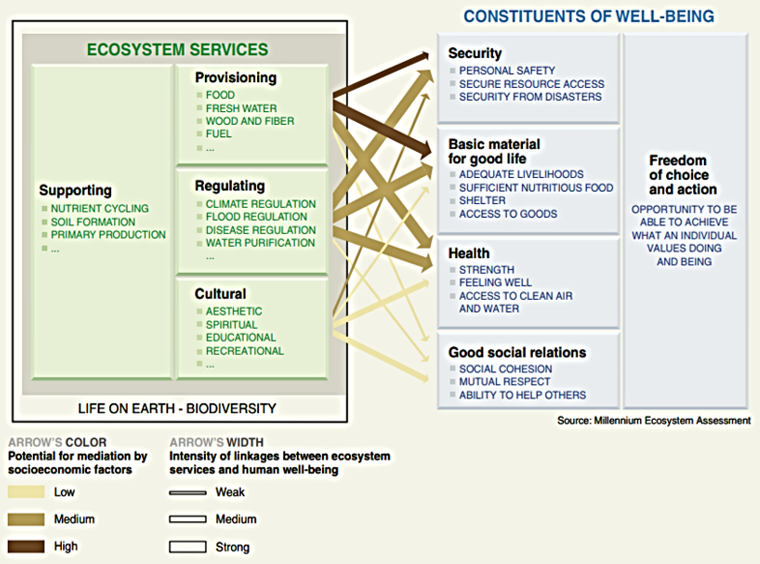MOOC: Auditing Water Management
Ecosystem services (water-dependent ecosystems and habitats)
Ecosystems in oceans, rivers and lakes are directly dependent on water which forms the environment for living organisms. Water is also essential to all other ecosystems. For example, changes in precipitation or the level of groundwater may cause changes in the ecological balance. Lack of water may lead to desertification, while abundance of water for longer than necessary may cause the death of existing vegetation and lead to formation of wetlands, resulting in the disappearance of some species and their replacement by others. In most ecosystems there are seasonal patterns for the water cycle (e.g. monsoon rains the same month every year, snowfall in winter). Abrupt and lasting changes in seasonal patterns result in hardship for all species, e.g. starvation of animals as well as people when crops fail.
Water is closely connected to ecosystem services. Several ecosystems (e.g. forests, wetlands, lakes) hold water using the nutrients (such as nitrogen (N) and phosphorus (P)), thus removing pollution to a certain extent. The ability of ecosystems to provide services depends on the availability of a suitable amount of water for a given system. In the case of too much or too little water, the ecosystem experiences stress and the provision of ecosystem services (e.g. production of oxygen, temperature regulation) is hindered. Figure 3 (below) describes the linkages between ecosystem services and human well-being. The failure of ecosystem services related to water put our security and basic materials for good life and health at risk.

Figure 3. Linkages between ecosystem services and human well-being []
See also the MOOC ‘Introduction to Environmental Auditing in the Public Sector‘ about ecosystem services.

